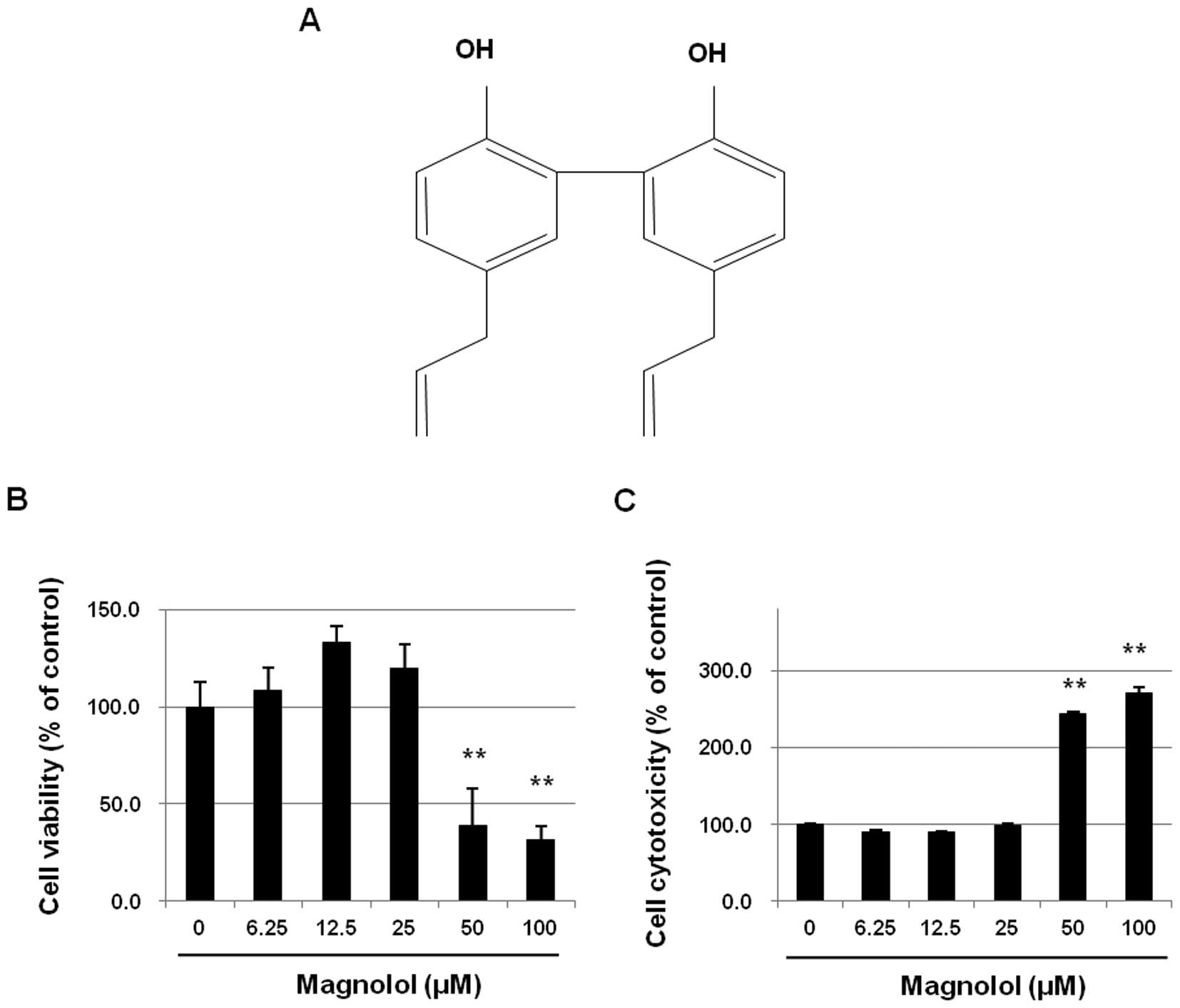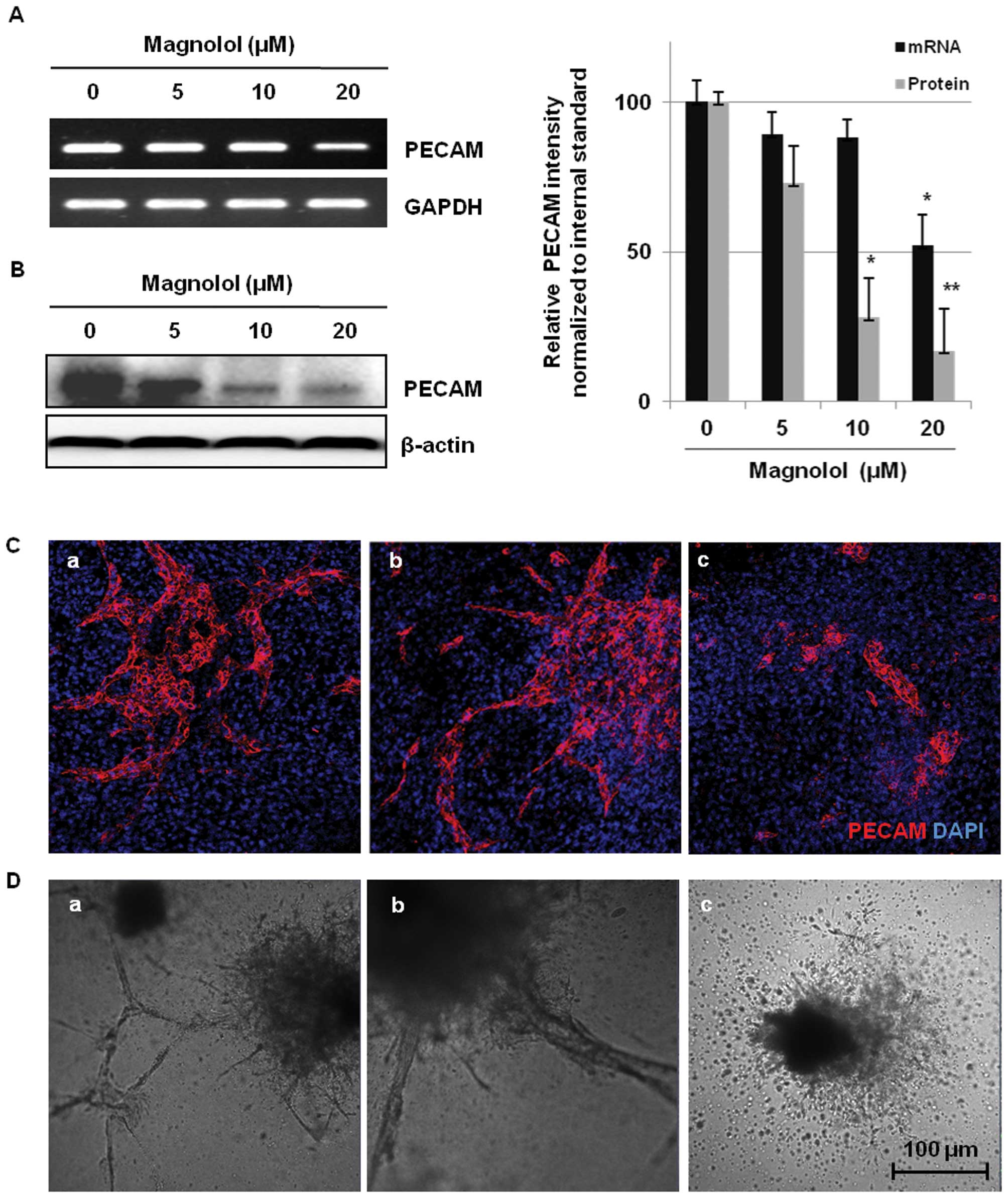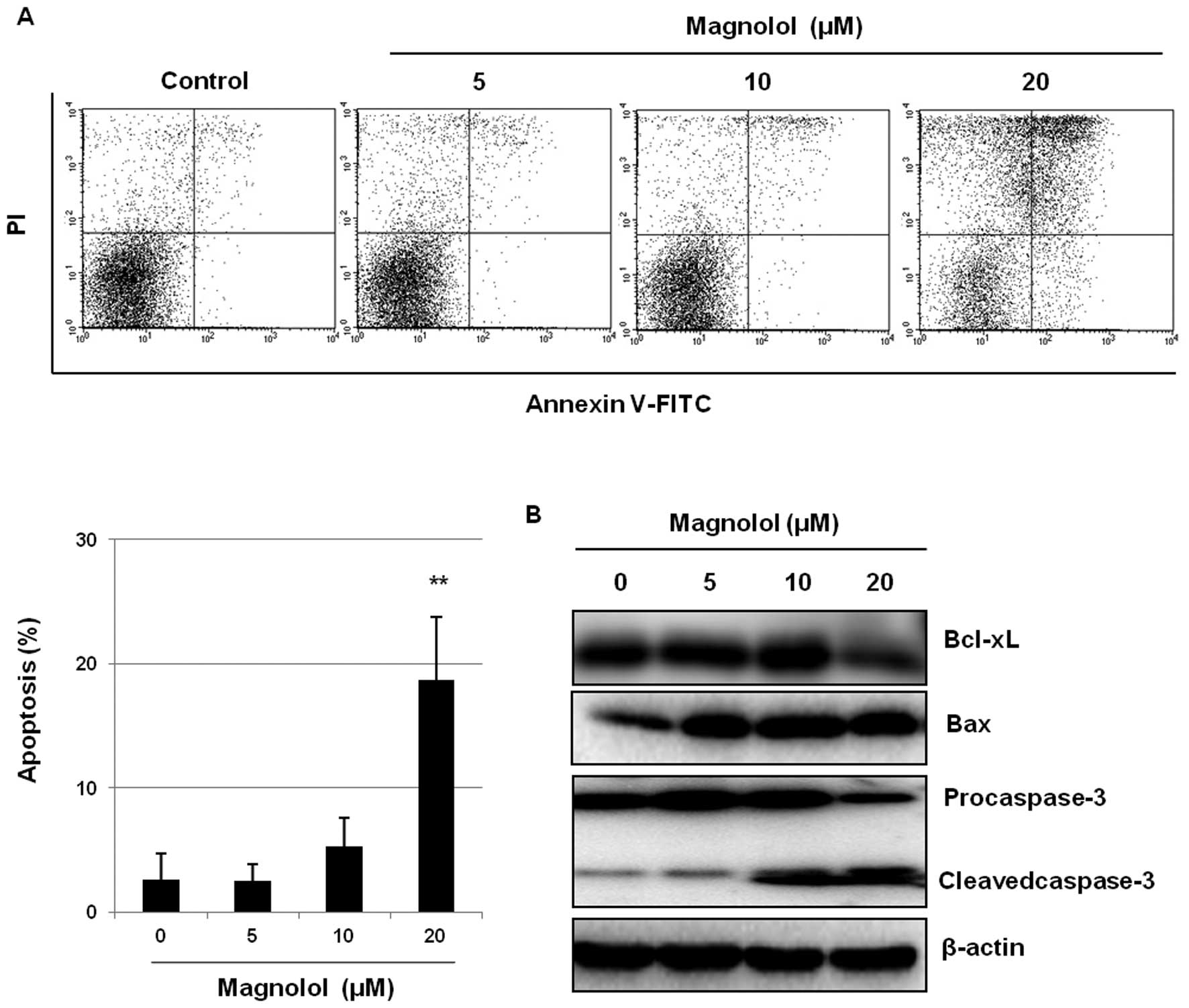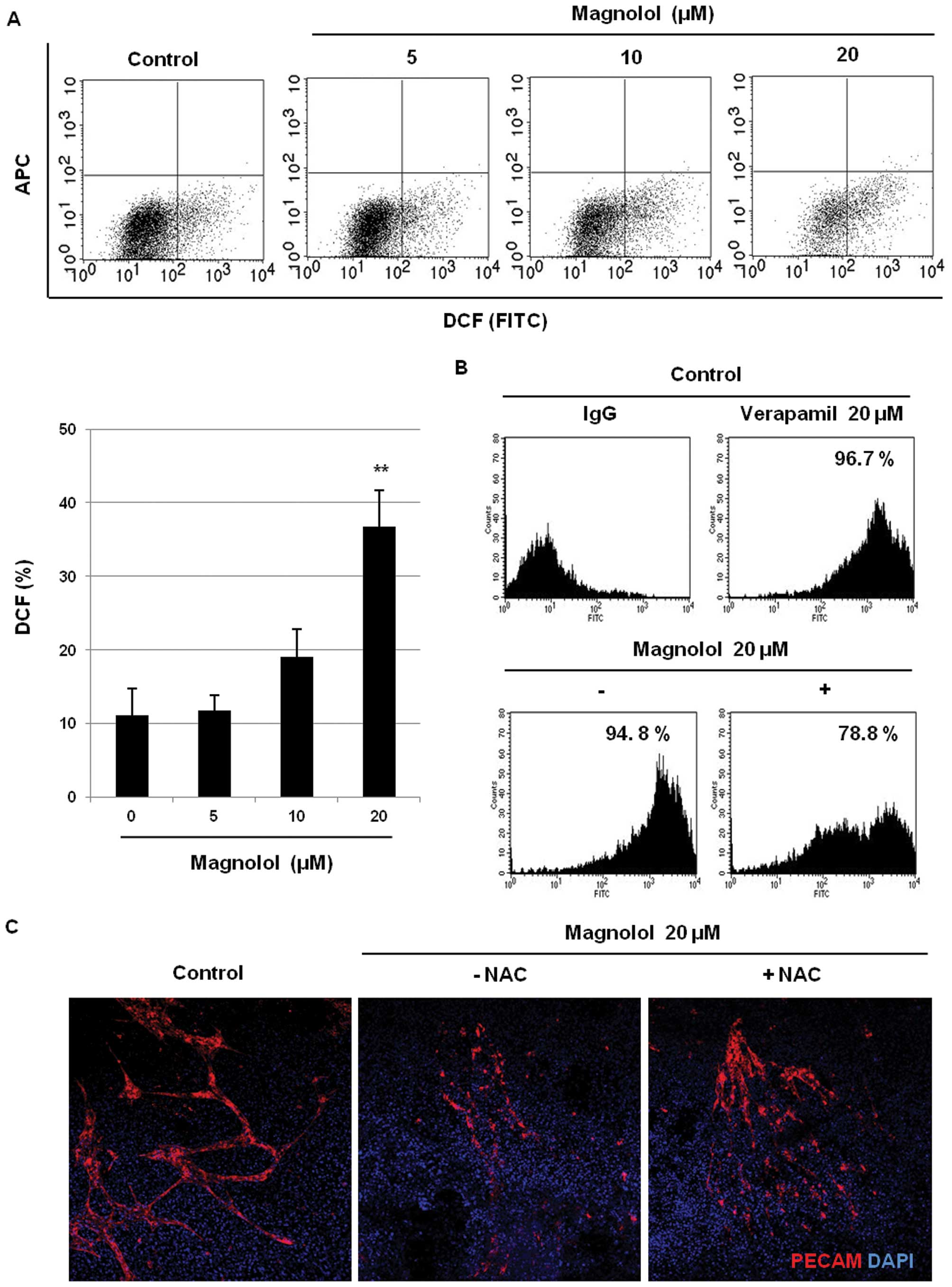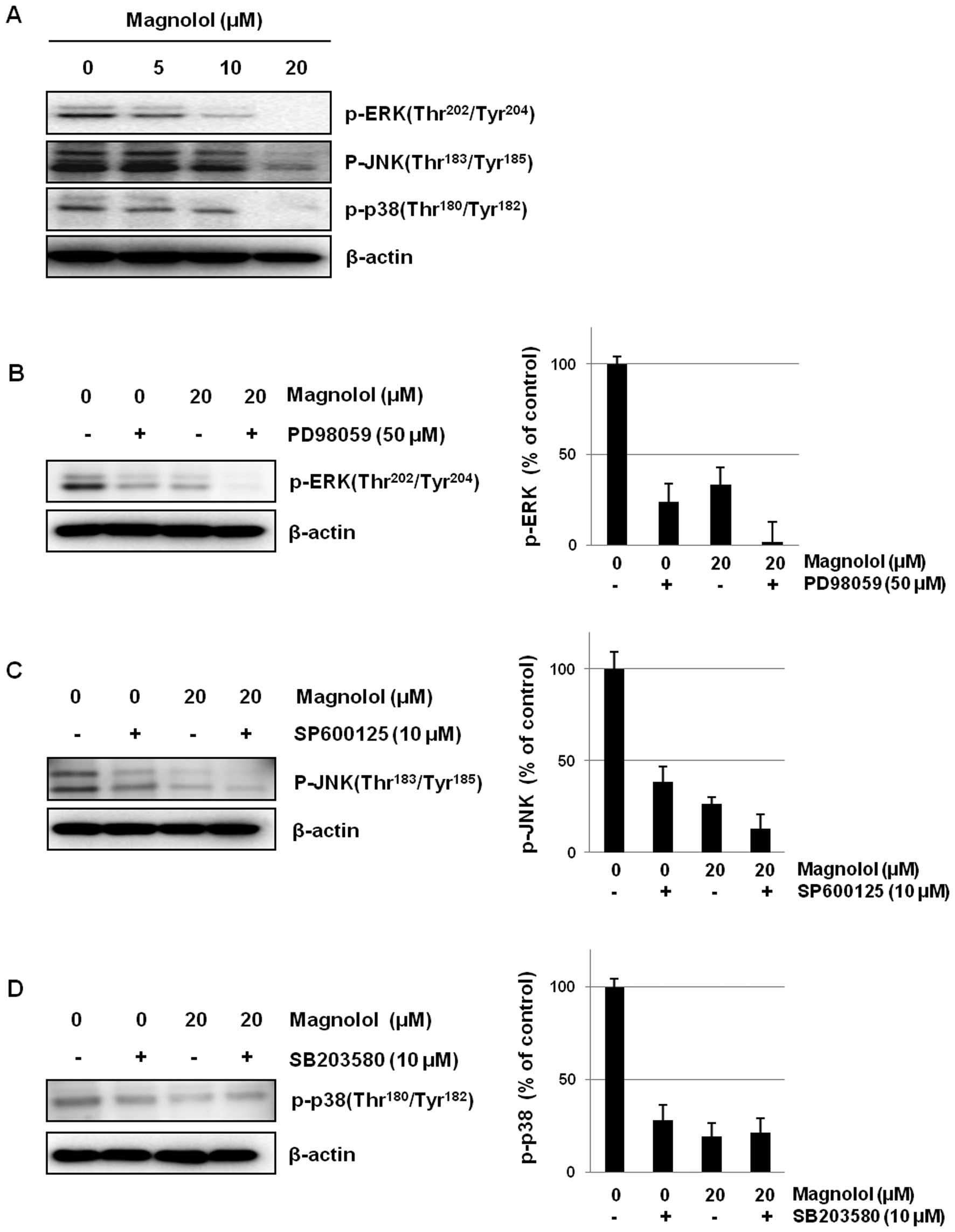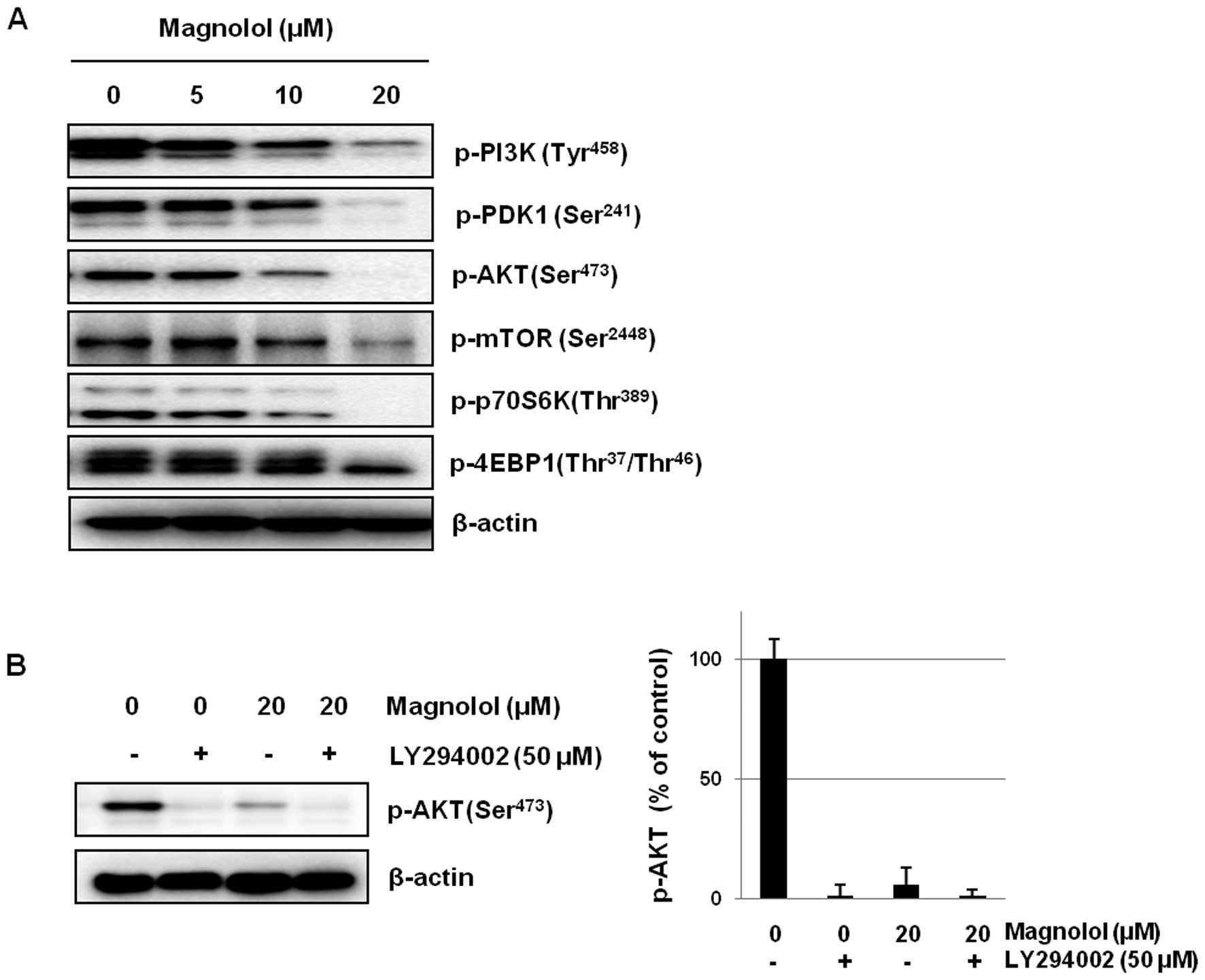|
1.
|
Carmeliet P and Jain RK: Molecular
mechanisms and clinical applications of angiogenesis. Nature.
473:298–307. 2011. View Article : Google Scholar : PubMed/NCBI
|
|
2.
|
Holderfield MT and Hughes CC: Crosstalk
between vascular endothelial growth factor, notch and transforming
growth factor-beta in vascular morphogenesis. Circ Res.
102:637–652. 2008. View Article : Google Scholar : PubMed/NCBI
|
|
3.
|
Volz KS, Miljan E, Khoo A and Cooke JP:
Development of pluripotent stem cells for vascular therapy. Vascul
Pharmacol. 56:288–296. 2012. View Article : Google Scholar : PubMed/NCBI
|
|
4.
|
Xu Z, Fang S, Zuo Y, et al: Combination of
pigment epithelium-derived factor with radiotherapy enhances the
antitumor effects on nasopharyngeal carcinoma by downregulating
vascular endothelial growth factor expression and angiogenesis.
Cancer Sci. 102:1789–1798. 2011. View Article : Google Scholar
|
|
5.
|
Sauer H, Gunther J, Hescheler J and
Wartenberg M: Thalidomide inhibits angiogenesis in embryoid bodies
by the generation of hydroxyl radicals. Am J Pathol. 156:151–158.
2000. View Article : Google Scholar : PubMed/NCBI
|
|
6.
|
Abid MR, Kachra Z, Spokes KC and Aird WC:
NADPH oxidase activity is required for endothelial cell
proliferation and migration. FEBS Lett. 486:252–256. 2000.
View Article : Google Scholar : PubMed/NCBI
|
|
7.
|
van Wetering S, van Buul JD, Quik S, et
al: Reactive oxygen species mediate Rac-induced loss of cell-cell
adhesion in primary human endothelial cells. J Cell Sci.
115:1837–1846. 2002.PubMed/NCBI
|
|
8.
|
Turrens JF: Mitochondrial formation of
reactive oxygen species. J Physiol. 552:335–344. 2003. View Article : Google Scholar : PubMed/NCBI
|
|
9.
|
Yap TA, Garrett MD, Walton MI, Raynaud F,
de Bono JS and Workman P: Targeting the PI3K-AKT-mTOR pathway:
progress, pitfalls and promises. Curr Opin Pharmacol. 8:393–412.
2008. View Article : Google Scholar : PubMed/NCBI
|
|
10.
|
McCubrey JA, Lahair MM and Franklin RA:
Reactive oxygen species-induced activation of the MAP kinase
signaling pathways. Antioxid Redox Signal. 8:1775–1789. 2006.
View Article : Google Scholar : PubMed/NCBI
|
|
11.
|
El-Najjar N, Chatila M, Moukadem H, et al:
Reactive oxygen species mediate thymoquinone-induced apoptosis and
activate ERK and JNK signaling. Apoptosis. 15:183–195. 2010.
View Article : Google Scholar : PubMed/NCBI
|
|
12.
|
Risau W, Sariola H, Zerwes HG, et al:
Vasculogenesis and angiogenesis in embryonic-stem-cell-derived
embryoid bodies. Development. 102:471–478. 1988.PubMed/NCBI
|
|
13.
|
Wang R, Clark R and Bautch VL: Embryonic
stem cell-derived cystic embryoid bodies form vascular channels: an
in vitro model of blood vessel development. Development.
114:303–316. 1992.PubMed/NCBI
|
|
14.
|
Li X and Claesson-Welsh L: Embryonic stem
cell models in vascular biology. J Thromb Haemost (Suppl). 1:53–56.
2009. View Article : Google Scholar
|
|
15.
|
Descamps B and Emanueli C: Vascular
differentiation from embryonic stem cells: novel technologies and
therapeutic promises. Vascul Pharmacol. 56:267–279. 2012.
View Article : Google Scholar : PubMed/NCBI
|
|
16.
|
Kawamura H, Li X, Goishi K, et al:
Neuropilin-1 in regulation of VEGF-induced activation of
p38MAPK and endothelial cell organization. Blood.
112:3638–3649. 2008. View Article : Google Scholar : PubMed/NCBI
|
|
17.
|
Han HJ, Heo JS and Lee YJ:
Estradiol-17beta stimulates proliferation of mouse embryonic stem
cells: involvement of MAPKs and CDKs as well as protooncogenes. Am
J Physiol Cell Physiol. 290:C1067–C1075. 2006. View Article : Google Scholar : PubMed/NCBI
|
|
18.
|
Heo JS, Lee YJ and Han HJ: EGF stimulates
proliferation of mouse embryonic stem cells: involvement of
Ca2+ influx and p44/42 MAPKs. Am J Physiol Cell Physiol.
290:C123–C133. 2006.PubMed/NCBI
|
|
19.
|
Kim GD, Rhee GS, Chung HM, Chee KM and Kim
GJ: Cytotoxicity of 5-fluorouracil: effect on endothelial
differentiation via cell cycle inhibition in mouse embryonic stem
cells. Toxicol In Vitro. 23:719–727. 2009. View Article : Google Scholar : PubMed/NCBI
|
|
20.
|
Kim GD, Bae SY, Park HJ, Bae K and Lee SK:
Honokiol inhibits vascular vessel formation of mouse embryonic stem
cell-derived endothelial cells via the suppression of PECAM and
MAPK/mTOR signaling pathway. Cell Physiol Biochem. 30:758–770.
2012. View Article : Google Scholar : PubMed/NCBI
|
|
21.
|
Ho JW and Jie M: Pharmacological activity
of cardiovascular agents from herbal medicine. Cardiovasc Hematol
Agents Med Chem. 5:273–277. 2007. View Article : Google Scholar : PubMed/NCBI
|
|
22.
|
Amblard F, Govindarajan B, Lefkove B, et
al: Synthesis, cytotoxicity and antiviral activities of new
neolignans related to honokiol and magnolol. Bioorg Med Chem Lett.
17:4428–4431. 2007. View Article : Google Scholar : PubMed/NCBI
|
|
23
|
Park J, Lee J, Jung E, et al: In vitro
antibacterial and anti-inflammatory effects of honokiol and
magnolol against Propionibacterium sp. Eur J Pharmacol.
496:189–195. 2004. View Article : Google Scholar : PubMed/NCBI
|
|
24.
|
Tsai YC, Cheng PY, Kung CW, et al:
Beneficial effects of magnolol in a rodent model of endotoxin
shock. Eur J Pharmacol. 641:67–73. 2010. View Article : Google Scholar : PubMed/NCBI
|
|
25.
|
Park JB, Lee MS, Cha EY, et al:
Magnolol-induced apoptosis in HCT-116 colon cancer cells is
associated with the AMP-activated protein kinase signaling pathway.
Biol Pharm Bull. 35:1614–1620. 2012.PubMed/NCBI
|
|
26.
|
Chuang TC, Hsu SC, Cheng YT, et al:
Magnolol down-regulates HER2 gene expression, leading to inhibition
of HER2-mediated metastatic potential in ovarian cancer cells.
Cancer Lett. 311:11–19. 2011. View Article : Google Scholar : PubMed/NCBI
|
|
27.
|
Lin SY, Liu JD, Chang HC, Yeh SD, Lin CH
and Lee WS: Magnolol suppresses proliferation of cultured human
colon and liver cancer cells by inhibiting DNA synthesis and
activating apoptosis. J Cell Biochem. 84:532–544. 2002. View Article : Google Scholar : PubMed/NCBI
|
|
28.
|
Park EJ, Zhao YZ, Na M, et al: Protective
effects of honokiol and magnolol on tertiary butyl hydroperoxide-
or D-galactosamine-induced toxicity in rat primary hepatocytes.
Planta Med. 69:33–37. 2003. View Article : Google Scholar : PubMed/NCBI
|
|
29.
|
Heuer J, Bremer S, Pohl I and Spielmann H:
Development of an in vitro embryotoxicity test using murine
embryonic stem cell cultures. Toxicol In Vitro. 7:551–556. 1993.
View Article : Google Scholar : PubMed/NCBI
|
|
30.
|
Scholz G, Pohl I, Genschow E, Klemm M and
Spielmann H: Embryotoxicity screening using embryonic stem cells in
vitro: correlation to in vivo teratogenicity. Cells Tissues Organs.
165:203–211. 1999. View Article : Google Scholar : PubMed/NCBI
|
|
31.
|
Jakobsson L, Kreuger J, Holmborn K, et al:
Heparan sulfate in trans potentiates VEGFR-mediated angiogenesis.
Dev Cell. 10:625–634. 2006. View Article : Google Scholar : PubMed/NCBI
|
|
32.
|
Newman PJ: The biology of PECAM-1. J Clin
Invest. 99:3–8. 1997. View Article : Google Scholar : PubMed/NCBI
|
|
33.
|
Sauer H, Rahimi G, Hescheler J and
Wartenberg M: Effects of electrical fields on cardiomyocyte
differentiation of embryonic stem cells. J Cell Biochem.
75:710–723. 1999. View Article : Google Scholar : PubMed/NCBI
|
|
34.
|
Sauer H and Wartenberg M: Reactive oxygen
species as signaling molecules in cardiovascular differentiation of
embryonic stem cells and tumor-induced angiogenesis. Antioxid Redox
Signal. 7:1423–1434. 2005. View Article : Google Scholar : PubMed/NCBI
|
|
35.
|
Karar J and Maity A: PI3K/AKT/mTOR pathway
in angiogenesis. Front Mol Neurosci. 4:512011. View Article : Google Scholar : PubMed/NCBI
|
|
36.
|
Olsson AK, Dimberg A, Kreuger J and
Claesson-Welsh L: VEGF receptor signalling-in control of vascular
function. Nat Rev Mol Cell Biol. 7:359–371. 2006. View Article : Google Scholar : PubMed/NCBI
|
|
37.
|
Sato Y: The vasohibin family: a novel
family for angiogenesis regulation. J Biochem. 153:5–11. 2013.
View Article : Google Scholar : PubMed/NCBI
|
|
38.
|
Frampton JE: Ranibizumab: in diabetic
macular oedema. Drugs. 72:509–523. 2012. View Article : Google Scholar : PubMed/NCBI
|
|
39.
|
Hong SW, Jung KH, Lee HS, et al: SB365
inhibits angiogenesis and induces apoptosis of hepatocellular
carcinoma through modulation of PI3K/Akt/mTOR signaling pathway.
Cancer Sci. 103:1929–1937. 2012. View Article : Google Scholar : PubMed/NCBI
|
|
40.
|
Hong SW, Jung KH, Lee HS, et al: Apoptotic
and anti-angiogenic effects of Pulsatilla koreana extract on
hepatocellular carcinoma. Int J Oncol. 40:452–460. 2012.PubMed/NCBI
|
|
41.
|
Nishikawa T, Tsuno NH, Okaji Y, et al: The
inhibition of autophagy potentiates anti-angiogenic effects of
sulforaphane by inducing apoptosis. Angiogenesis. 13:227–238. 2010.
View Article : Google Scholar : PubMed/NCBI
|
|
42.
|
Xu HL, Tang W, Du GH and Kokudo N:
Targeting apoptosis pathways in cancer with magnolol and honokiol,
bioactive constituents of the bark of Magnolia officinalis. Drug
Discov Ther. 5:202–210. 2011. View Article : Google Scholar : PubMed/NCBI
|
|
43.
|
Simon HU, Haj-Yehia A and Levi-Schaffer F:
Role of reactive oxygen species (ROS) in apoptosis induction.
Apoptosis. 5:415–418. 2000. View Article : Google Scholar : PubMed/NCBI
|
|
44.
|
Xia Z, Dickens M, Raingeaud J, Davis RJ
and Greenberg ME: Opposing effects of ERK and JNK-p38 MAP kinases
on apoptosis. Science. 270:1326–1331. 1995. View Article : Google Scholar : PubMed/NCBI
|
|
45.
|
McCubrey JA, Steelman LS, Chappell WH, et
al: Roles of the Raf/MEK/ERK pathway in cell growth, malignant
transformation and drug resistance. Biochim Biophys Acta.
1773:1263–1284. 2007. View Article : Google Scholar : PubMed/NCBI
|
|
46.
|
Cho DH, Choi YJ, Jo SA, et al:
Troglitazone acutely inhibits protein synthesis in endothelial
cells via a novel mechanism involving protein phosphatase
2A-dependent p70 S6 kinase inhibition. Am J Physiol Cell Physiol.
291:C317–C326. 2006. View Article : Google Scholar
|
|
47.
|
Manning BD and Cantley LC: AKT/PKB
signaling: navigating downstream. Cell. 129:1261–1274. 2007.
View Article : Google Scholar : PubMed/NCBI
|















